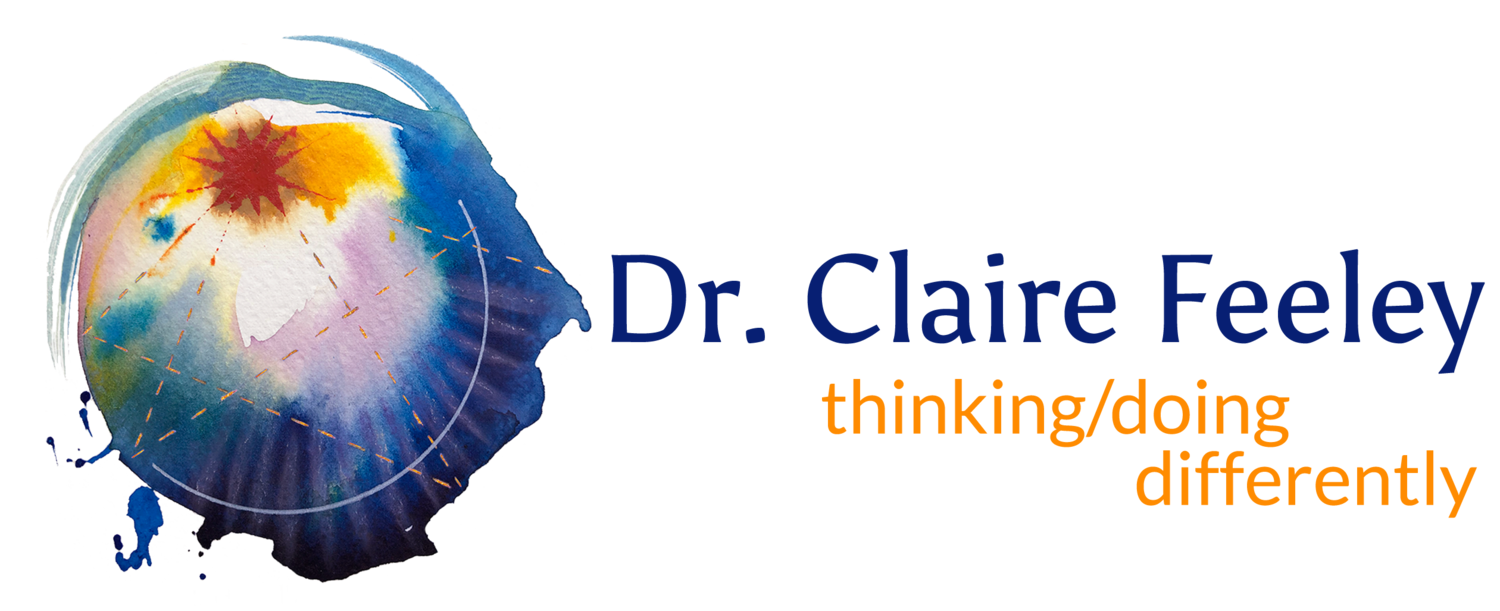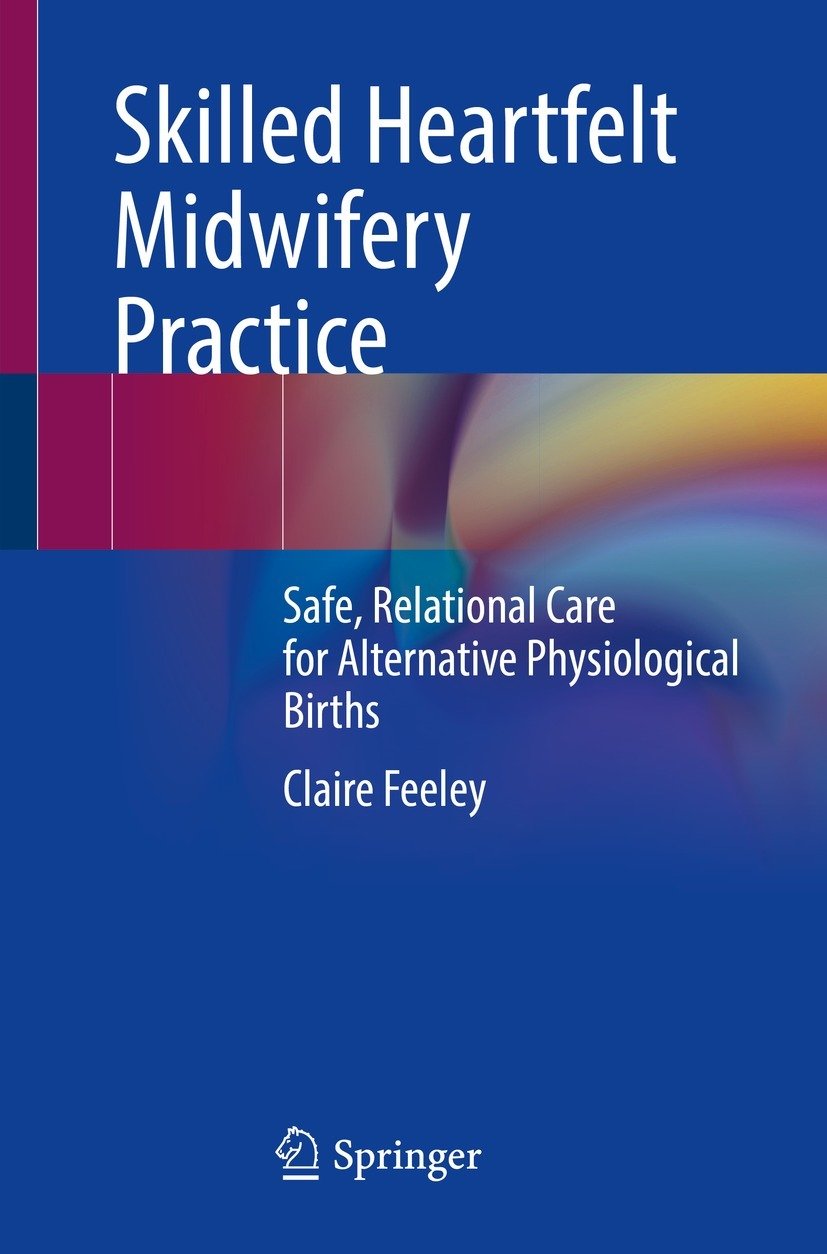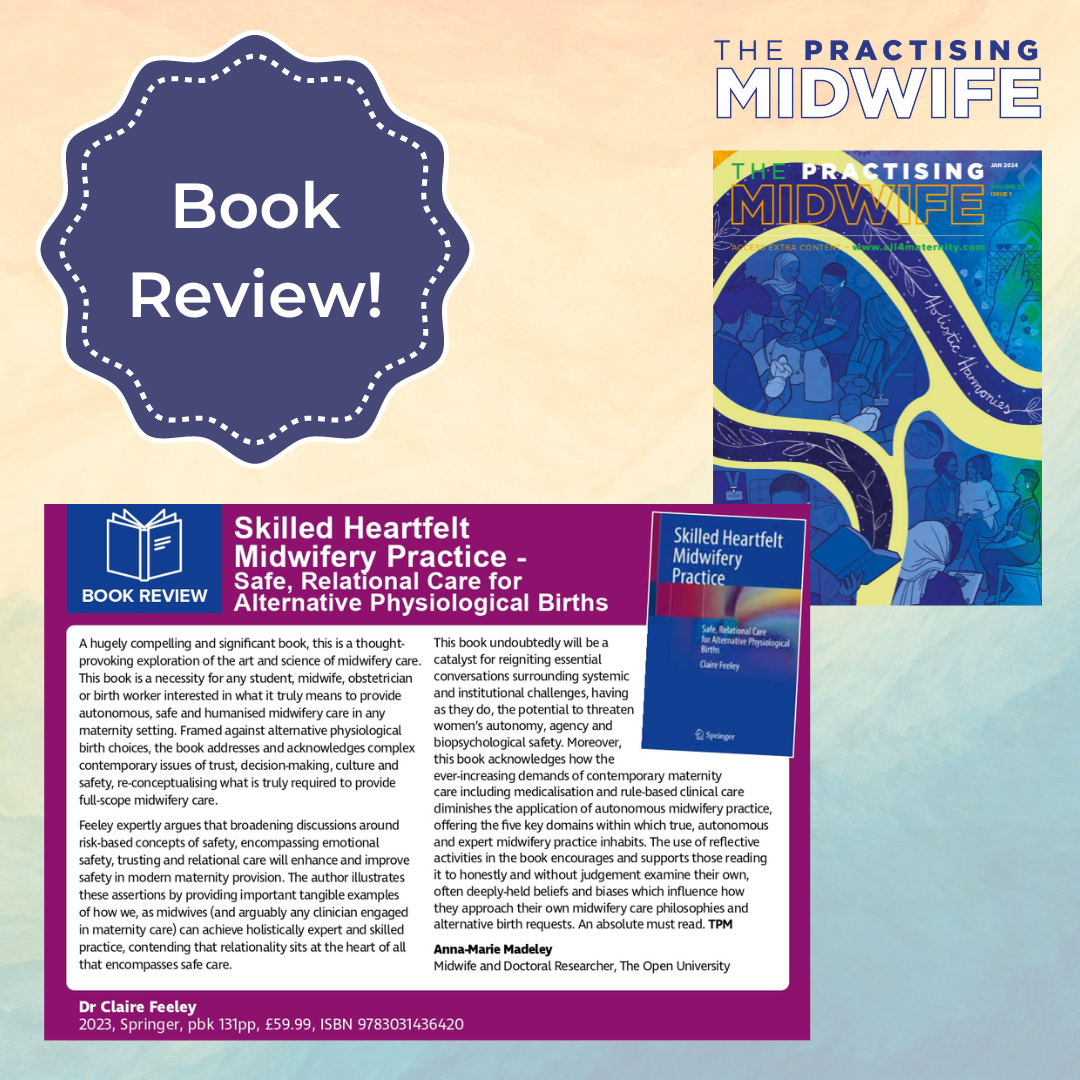
Skilled Heartfelt Midwifery Practice - Safe, Relational Care for Alternative Physiological Births
· Illuminates how midwives cultivate meaningful relationships & use their emotional intelligence to provide safe care
· Highlights the clinical skills for physiological births across the spectrum of health and complicated pregnancies
· Showcases how midwives can cultivate 'skilled heartfelt practice' in different working contexts
This book about the art, craft and science of expert midwifery care, while focusing on ‘alternative physiological births’ that are those ‘outside’ of guidelines, the contents can be applied to any birthing choices. Drawing upon the findings of a PhD that captured the experiences of midwives who proactively supported alternative physiological births while working in the National Health Service, their practice was conceptualised as ‘skilled heartfelt practice’. Skilled heartfelt practice denotes the interrelationship between midwives’ attitudes and beliefs in support of women’s choices, their values of cultivating meaningful relationships, and their expert practical clinical skills. It is these qualities combined that give rise to what is called ‘full-scope midwifery’ as defined by the Lancet Midwifery Series. This book illuminates why and how these midwives facilitated safe, relational care. Using a combination of emotional intelligence skills and clinical expertise while centring women’s bodily autonomy, they ensured safe care was provided within a holistic framework. Moreover, this book offers insights for midwives to move beyond ‘rule-based’ practice, where the benefits of expert practice are illuminated. Midwives facilitating ‘alternative’ physiological births epitomise evidence-based practice, which centres the woman or birthing person as the expert in their life, and the midwife meets them where they are with expert skills to support them. But what does this look like in clinical practice, particularly for those employed by institutions, those ‘working within the system’ who have constraints that private or self-employed midwives don’t have? How does a midwife cultivate those skills within a culture and climate that devalues both relationships, midwives and women’s autonomy? This book aims to provide a roadmap for those seeking to cultivate these skills. The core focus will be the midwife-mother relationship from the perspectives of the midwives, rather than the midwives wider working relationships or workplace contexts. This is purposeful so to offer a deep dive into the nuanced and varied ways of delivering this type of care. However, the realities of practice are also firmly embedded with the book, tensions will be explored, limitations acknowledged.
A hugely compelling and significant book, this is a thought- provoking exploration of the art and science of midwifery care. This book is a necessity for any student, midwife, obstetrician or birth worker interested in what it truly means to provide autonomous, safe and humanised midwifery care in any maternity setting. Framed against alternative physiological birth choices, the book addresses and acknowledges complex contemporary issues of trust, decision-making, culture and safety, re-conceptualising what is truly required to provide full-scope midwifery care.
Feeley expertly argues that broadening discussions around risk-based concepts of safety, encompassing emotional safety, trusting and relational care will enhance and improve safety in modern maternity provision. The author illustrates these assertions by providing important tangible examples of how we, as midwives (and arguably any clinician engaged in maternity care) can achieve holistically expert and skilled practice, contending that relationality sits at the heart of all that encompasses safe care.
This book undoubtedly will be a catalyst for reigniting essential conversations surrounding systemic and institutional challenges, having as they do, the potential to threaten women’s autonomy, agency and biopsychological safety. Moreover, this book acknowledges how the ever-increasing demands of contemporary maternity care including medicalisation and rule-based clinical care diminishes the application of autonomous midwifery practice, offering the five key domains within which true, autonomous and expert midwifery practice inhabits. The use of reflective activities in the book encourages and supports those reading it to honestly and without judgement examine their own, often deeply-held beliefs and biases which influence how they approach their own midwifery care philosophies and alternative birth requests. An absolute must read. TPM Anna-Marie Madeley, Midwife and Doctoral Researcher, The Open University


